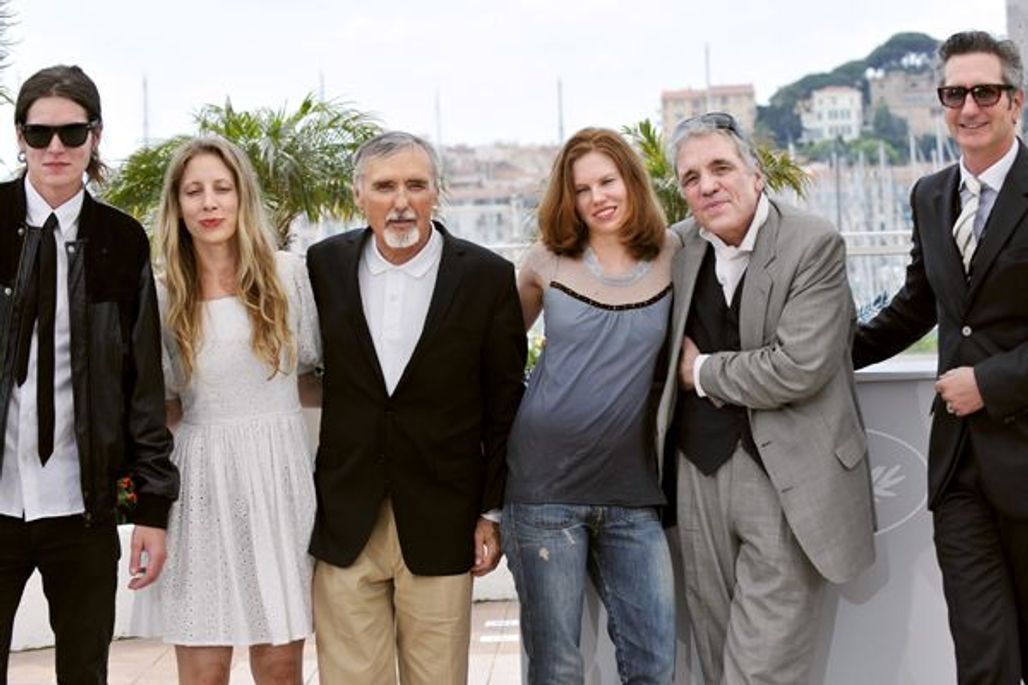
Press Conference: “Chelsea On The Rocks”

At the press conference for the documentary Chelsea On The Rocks, director Abel Ferrara appeared with actors Dennis Hopper, Jamie Burke, and Shanyn Leigh, and producers Jen Gatien and Christ Zois. Choice morsels:
Dennis Hopper, on his own experience at the Chelsea Hotel:
“I didn’t go to New York until I was 18 or 19 years old. I was under contract to Warner Brothers at the time. Natalie Wood and I went to star in a live television show called “Kaiser Aluminum Hour.” … After I made “Easy Rider” … I came back to live at the Chelsea Hotel for some months. Emmett Grogan… who was the head of the Diggers in San Francisco, Peter Coyote… they were all around, and I felt very safe there, and very protected. Bob Dylan was around. It was a very wonderful time for me, creatively. And very adventurous. We were all living on the edge. The edge of what, I’m not sure, but we were all living on the edge of it… A number of us fell in the hole, and some of us stood on the rim, and some of us got out of there. But it was a really special, exciting time. I’ll always cherish it.”
Jen Gatien, on the urgency in making this documentary:
“Stanley Bard had run the hotel as an owner-manager, and had a very unique sense of what he wanted the hotel to be about. He had silent partners who decided that wasn’t what they wanted anymore… That was a rough neighborhood, up until the last 15 or 20 years… And suddenly, with the influx of galleries, and chic boutique hotels, and Manhattan being taken over as a purely financially driven city, they had… a different agenda than Stanley did, and he lost control of the hotel. Since then, there’s been a management company that has sought to get rid of as many tenants as possible. I was among them.”
Abel Ferrara, on his approach to this film:
“You try to find the beauty, you try to find the life… As a filmmaker, I think it’s your real job to look for the ultimate in it, you know what I mean? When you say, to look for the beauty in the darkness… Using that [documentary] form, and constantly changing, and constantly breaking down the structure of the film, and not getting stuck in the pure narrative, you know, 90-minute storytelling framework… I’m glad I did this.”
Christ Zois, on Abel Ferrara’s intentions:
“Speaking for Abel, because we talked about the project for a long time… He’s not really looking for romance in the sense of that common usage of the word. He’s looking to explore the lives of people who are struggling heroically. Not only the famous celebrities, or those who have become celebrities, but those everyday people that the world has no place for. So in that sense, yes, he has looked at every dark corner for that kind of human struggle, in all of his films.”


